Tourism is of supreme importance to Nepal, and its meaning cannot be understated. As a landlocked country in South Asia, Nepal has included tourism as an energetic sector of its economy. The exceptional mixture of natural beauty, rich cultural heritage, and bold chances has made Nepal a highly sought-after destination for travellers from around the world.
Economic Importance of Tourism in Nepal
Employment Generation: Tourism created many direct and indirect job opportunities in numerous sectors such as hospitality, transportation, retail, and handicrafts. From hotel staff and tour guides to artists selling mementos, a considerable portion of the Nepalese people depended on tourism-related events for their livelihood.
Foreign Exchange Earnings: Tourism brought in considerable foreign currency earnings to Nepal. With visitors’ expenditure of money on accommodation, food, transportation, and cultural skills, the arrival of foreign exchange helped support the country's balance of payments and reduced its reliance on imports.
Contribution to GDP: The tourism sector directly contributed to Nepal's gross domestic product (GDP). Additionally, it had positive wave effects on other sectors of the economy, like agriculture and trade, which supplied goods and facilities to support the tourism industry.
Promotion of Local Culture and Heritage: Nepal's rich cultural heritage and natural beauty involve tourists from all over the world. The protection and promotion of local culture and traditions helped in satisfying and showcasing Nepal's exceptional identity on the worldwide stage.
Infrastructure Development: The growth of tourism needed the development of infrastructure like hotels, airports, roads, and message networks. These funds not only supported tourism but also improved the overall connectivity and existing standards in the regions visited by tourists.
Regional Development: Tourism subsidised to the development of less-developed regions of Nepal. Popular trekking trails like the Annapurna Circuit and Everest Base Camp fascinated visitors to remote areas, providing revenue and employment opportunities to local communities.
Diversification of Economy: Depending on a single sector can be risky for any country's economy. Tourism helped Nepal spread its revenue sources, dropping the vulnerability associated with overdependence on exact sectors.
It's essential to note that the state of tourism can change over time due to various factors, including global economic conditions, geopolitical events, natural disasters, and political stability within Nepal. Therefore, it's recommended to refer to more recent sources to get the most up-to-date information on the economic importance of tourism in Nepal.
Social Importance of Tourism in Nepal
The social importance of tourism in Nepal goes under its economic assistance and plays a vital role in shaping and influencing various aspects of society.
Cultural Exchange and Understanding: Tourism nurtures cultural exchange between inhabitants and visitors. It provides a chance for Nepalese societies to share their traditions, customs, and way of life with people from different parts of the world. This collaboration can lead to larger cultural understanding and gratitude among tourists and locals.
Preservation of Culture and Heritage: The revenue made from tourism often supports the protection and renovation of historical sites, memorials, and cultural heritage. The gratitude of these sites as tourist charms encourages their protection, safeguarding them from being passed down to forthcoming generations.
Community Empowerment: Community-based tourism creativities empower local communities by relating them in decision-making processes, revenue-sharing, and providing chances for them to showcase their culture and lifestyle. This participation can lead to increased pride in their heritage and better communal unity within societies.
Education and Awareness: As guests learn about Nepal's rich cultural heritage and ecological variety, they also become conscious of the importance of preserving these assets. This can lead to increased support for maintenance efforts and sustainable performances among tourists and the broader global community.
Improved Infrastructure and Services: To provide to tourists' needs, there is often an upgrading in resident infrastructure and services, such as better roads, hygiene facilities, health care centres, and schools. These upgrades can advantage both tourists and locals, attracting the general quality of life.
Women's Empowerment: In many cases, tourism has provided chances for women to contribute in the workforce, mainly in the friendliness and service sectors. This economic authorization can lead to superior gender equality and social presence.
Fostering Tolerance and Acceptance: The connections between tourists from varied backgrounds and local communities can encourage tolerance, acceptance, and gratitude of different cultures and lifestyles. This can underwrite a more harmonious and comprehensive society.
Preservation of Traditional Crafts: Tourism creates a request for reliable handicrafts and artisan products, leading to the protection and extension of traditional skills and craftsmanship. This can be a source of pride for local artists and helps keep cultural civilizations alive.
Promotion of Eco-Friendly Practices: With the rising interest in ecotourism and sustainable travel, tourists are more likely to support and promote eco-friendly practices in Nepal. This can encourage locals and businesses to accept environmentally responsible measures, causal to conservation efforts.
Environmental Importance of Tourism in Nepal
The environmental importance of tourism in Nepal is a serious aspect to consider, as the country's natural beauty and biodiversity are major attractions for visitors. While tourism can bring financial benefits, it also has the potential to impact the environment both positively and negatively.
Conservation and Preservation: Tourism can aid as a motivation for the conservation and preservation of natural resources and endangered areas. The income generated from arrival fees to national parks and preservation areas can be used for wildlife protection, home renovation, and anti-poaching efforts.
Awareness and Education: Tourism provides a time to raise awareness among visitors about environmental matters and the importance of preserving Nepal's exceptional ecosystems. Educated and responsible sightseers are more likely to provide eco-friendly practices and protection initiatives.
Sustainable Practices: The rise of ecotourism and accountable travel has stimulated businesses and local communities to accept sustainable practices. Eco-lodges, renewable energy creativities, waste management programs, and responsible hiking practices are examples of how tourism can drive confident environmental change.
Support for National Parks and Conservation Areas: Many of Nepal's iconic tourist destinations are set inside national parks and conservation areas. The arrival of visitors can provide monetary support for the maintenance and defence of these areas, safeguarding their long-term viability.
Wildlife and Biodiversity Protection: In charge tourism practices, such as skillful wildlife inspecting and obedience to strict trekking routes, can help minimise conflicts to wildlife and their habitats. This decreases the negative impact of tourism on defenceless species and ecosystems.
Climate Change Awareness: Tourism can contribute to rising consciousness about the influences of climate change, expressly in regions like the Himalayas, where the effects are obvious in melting glaciers and changing weather patterns. Informed tourists may support climate change justification efforts and maintainable practices.
Support for Conservation Projects: Some trip operators and organisations use a portion of their profits to fund preservation projects and community-based initiatives. This monetary support aids numerous environmental efforts in Nepal.
Despite these positive aspects, there are also environmental challenges associated with tourism in Nepal:
Overcrowding and Degradation: Widespread tourist destinations, especially in the Everest and Annapurna regions, can experience overfilling, leading to environmental degradation and bigger waste generation.
Deforestation and Habitat Loss: The demand for resources like firewood and structure materials in tourist areas can prime to deforestation and home loss for wildlife.
Waste Management: Insufficient waste administration infrastructure can result in unsuitable disposal of waste, foremost to pollution of water bodies and natural areas.
Carbon Emissions: International flights and domestic travel pay to greenhouse gas releases, affecting climate alteration and air quality.
To maximise the environmental profits of tourism and minimise its negative impacts, maintainable tourism practices, answerable trekking, waste management programs, and community-based conservation creativities are essential. It is vital for the government, local communities, tour operators, and tourists to work composed to protect Nepal's valuable natural heritage for upcoming generations.
Challenges and Future Prospects of Tourism in Nepal
Infrastructure: Despite improvements, Nepal's infrastructure, especially in rural areas, may still lack the essential facilities and services to accommodate a growing number of tourists. Inadequate transportation, electricity, and communication networks can delay travel and tourism understandings.
Environmental Impact: As stated earlier, tourism can have both positive and negative environmental influences. Overloading in widespread tourist areas, unsuitable waste management, deforestation, and wildlife disorder are some of the environmental trials that need to be talked about.
Seasonality: Tourism in Nepal is often exaggerated by seasonality. The mainstream of tourists visits throughout the peak trekking time of year (spring and autumn), leading to significant variations in tourist numbers and economic action throughout the year.
Political Stability: Political unpredictability and discontent in the country can discourage possible tourists from visiting Nepal. Ensuring a steady and harmless political environment is vital for the development of the tourism industry.
Geopolitical Factors: Geopolitical strains in the region can mark tourism, particularly when neighbouring countries enforce travel advisories or limitations.
Health and Safety Concerns: Health and security issues, such as natural tragedies (e.g., earthquakes) or disease eruptions, can influence tourism flows, as seen during the COVID-19 pandemic.
Lack of Marketing: Nepal faces rigid rivalry from other popular tourist destinations in the region. Actual marketing plans are essential to attract a varied range of tourists and maintain a modest edge.
Limited Air Connectivity: Although Nepal has made growth in improving air connectivity, limited direct flights from main worldwide hubs can make travel to the country less suitable for some probable tourists.
Future Prospects of Tourism in Nepal
Sustainable and Responsible Tourism: The upcoming of tourism in Nepal lies in supportable and in charge practices. Emphasising eco-friendly tourism, community-based creativities, and upkeep efforts will appeal to careful travellers and preserve the country's natural and cultural resources.
Diversification of Tourism Products: While trekking and mountaineering are the main attractions, Nepal can travel and endorse other forms of tourism, such as venture sports, wildlife tourism, cultural tourism, and religious tourism, to appeal to a broader listener.
Infrastructure Development: Sustained investment in infrastructure, including transport, hospitality, and communication, will improve the general travel experience and convenience to diverse parts of the country.
Digital Transformation: Acceptance digital technologies can progress tourism facilities, advertising, and communication with possible travellers. Online stages can be applied to promote Nepal's charms and enable bookings.
Promotion of Offbeat Destinations: Beyond the widespread traveller spots, encouraging lesser-known and unusual destinations can help separate tourist traffic, lessen pressure on over-touristed areas, and profit local communities.
Government Support and Policy: A supportive supervisory environment and real tourism strategies are important for the maintainable growth of the industry. This contains measures to protect the atmosphere, support local societies, and address structure needs.
Crisis Preparedness: Learning from earlier experiences, developing healthy crisis management and eventuality plans will be vital to ease the influence of any future disasters on tourism, such as natural disasters or well-being emergencies.
Collaboration with Private Sector: Collaboration between the government and private sector stakeholders, counting tour operators, managers, and local communities, is energetic to jointly work towards the growth and rise of tourism in Nepal.
Conclusion
Tourism is of supreme importance for Nepal due to its important economic, social, and ecological aids. As a main source of external exchange incomes, tourism plays a vital role in the country's financial growth and development. It creates employment chances, supports local businesses, and encourages regional development.
Beyond its economic benefits, tourism also grasps huge social significance. It raises cultural exchange, inspires the protection of Nepal's rich cultural heritage, and authorises local communities through numerous community-based creativities. Tourism acts as a substance for endorsing tolerance, understanding, and gratitude of different cultures amongst both visitors and locals.
Moreover, tourism plays an essential role in environmental conservation. Through supportable practices and answerable tourism initiatives, it supports the guard of Nepal's diverse ecosystems, wildlife, and natural beauty. Income generated from tourism can be directed into preservation projects and structure development in protected areas.
In conclusion, tourism is vital for Nepal's wealth and well-being. By taking advantage of its exceptional natural and cultural assets and accepting sustainable practices, Nepal can continue to appeal to global travellers, while preserving its heritage and environment for coming generations. Embracing answerable tourism practices will not only improve the tourism industry but also contribute to the general maintainable development of the country.

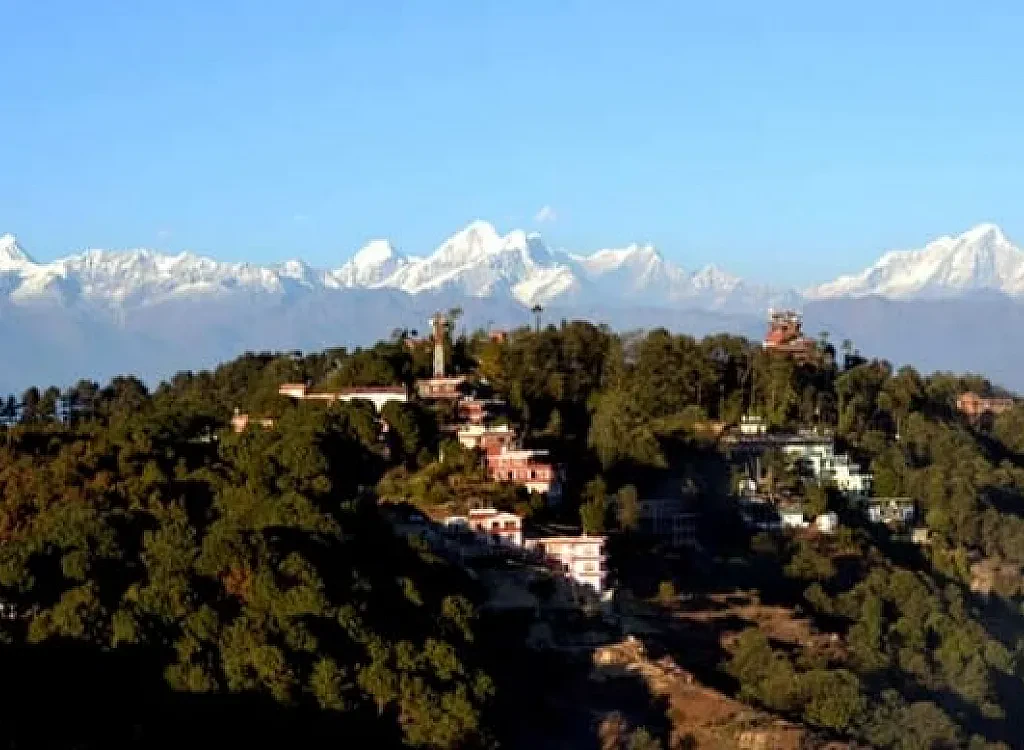
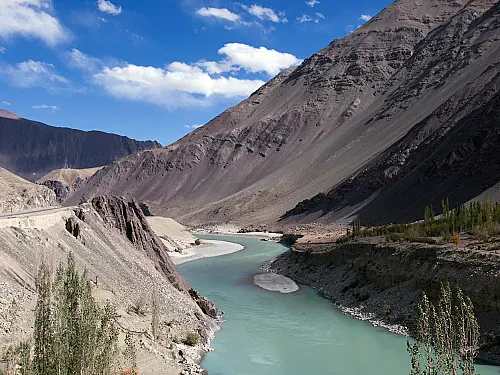
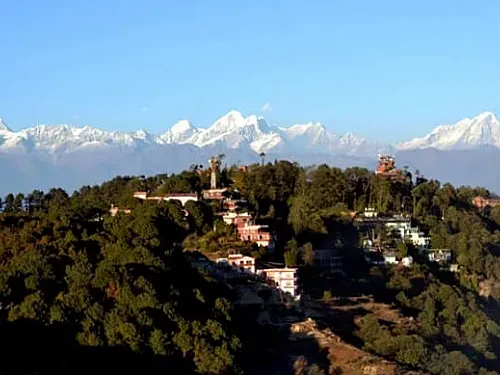
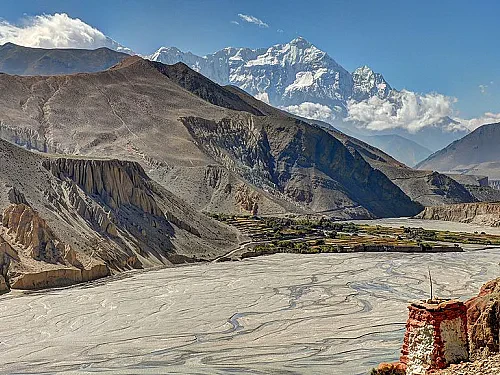
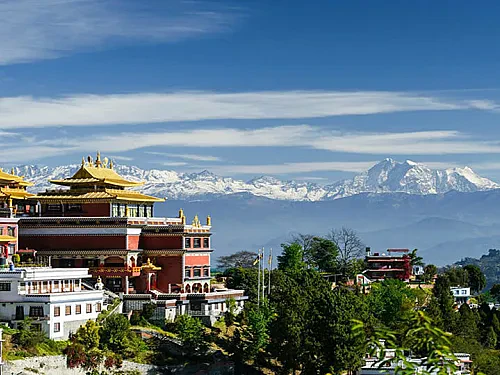
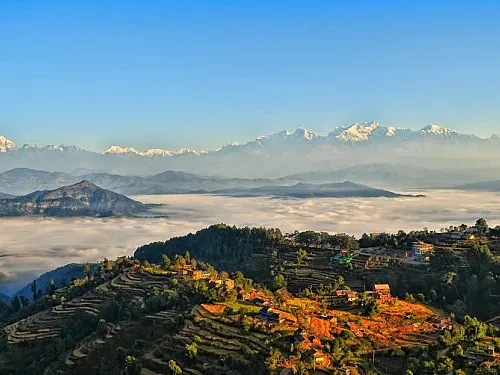
Comments